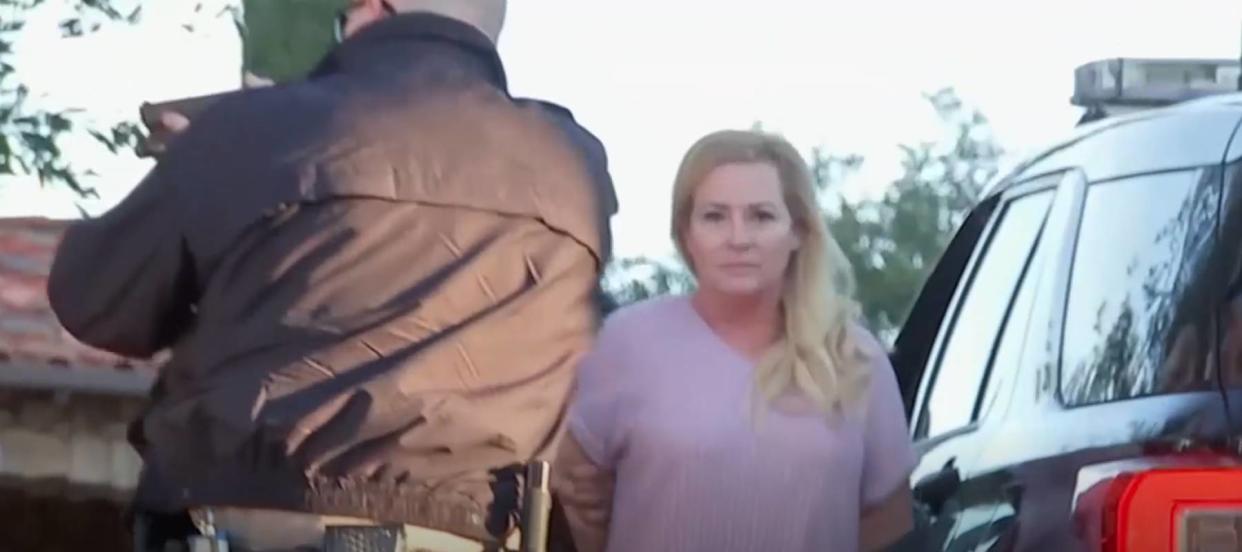San Diego mom accused of running a crime ring that stole millions of dollars worth of cosmetics to resell — why investigators say she’s only the tip of the iceberg in this ‘pervasive’ issue

San Diego mom Michelle Mack has been accused of masterminding an $8 million retail theft ring that pilfered cosmetics from Sephora and Ulta stores across the country.
Investigators say the 53-year-old ringleader employed a group of 12 women to perform the thievery and then stashed the loot inside her 4,500-square-foot Spanish-style mansion, which she then resold at a fraction of the original price on Amazon, raking in millions of dollars.
Don’t miss
'It's not taxed at all': Warren Buffett shares the 'best investment' you can make when battling rising costs — take advantage today
Car insurance premiums in America are through the roof — and only getting worse. But 5 minutes could have you paying as little as $29/month
Suze Orman says Americans are poorer than they think — but having a dream retirement is so much easier when you know these 3 simple money moves
In February, California Attorney General Rob Bonta filed 140 felony charges against Mack, her husband and seven other alleged members of the crew — which included conspiracy to commit organized retail theft, grand theft and receipt of stolen property.
“This is a multimillion-dollar criminal scheme. It was complex. It was orchestrated,” Bonta said, according to. “We are not talking about garden-variety shoplifting.”
Retail crime rings are performing elaborate operations
Police arrested Mack in December 2023, uncovering a “mini-store” in her garage filled with shelves of beauty products, sunglasses and designer bags, and recovered around 10,000 items.
Her Amazon marketplace featured makeup from popular brands at incredibly low prices — like a $25 bottle of Estee Lauder foundation that typically retails for $52 and a $17 tube of Too Faced mascara that’s usually priced at $29.
The investigators, who dubbed Mack’s crime group the “California Girls,” believe she was able to offer such cheap prices because her crew had stolen merchandise over hundreds of incidents spanning more than a decade.
Amazon sale records showed Mack hauled in $1.89 million in 2022 alone — and she’s not the only person who’s built a lucrative empire off elaborate retail schemes in recent years.
“We’re talking about operations that have fleets of trucks, 18-wheelers that have palletized loads of stolen goods, that have cleaning crews that actually clean the goods to make them look brand new,” Adam Parks, an assistant special agent from Homeland Security Investigations, told CNBC, which spent months embedded with various law enforcement agencies to investigate these crime groups.
Read more: 'Baby boomers bust': Robert Kiyosaki warns that older Americans will get crushed in the 'biggest bubble in history' — 3 shockproof assets for instant insurance now
Is retail crime actively hurting retailers?
Retailers like Target and Ulta have been blaming surging thefts for inventory shrinkage, lower profits, reduced foot traffic, shuttered stores and increased security measures — like the locked-up merchandise you’ll often spot on store shelves.
“The scourge of organized retail crime has become increasingly pervasive, with retailer losses driven by retail crime totaling nearly $100 billion dollars last year," said Tom Wickham, the Chamber of Commerce's senior vice president of State & Local Policy, in October.
Wickham points to a study from the National Retail Federation that found retail theft losses ballooned to $112.1 billion in 2022, up 19% from $93.9 billion the year before.
The report also revealed major metros like Los Angeles, San Francisco/Oakland, Houston and New York City were most affected by organized retail crime.
However, some experts suggest companies could be using these thefts as an excuse to cover up operational issues as well.
“While theft is likely elevated, companies are also likely using the opportunity to draw attention away from margin headwinds in the form of higher promotions and weaker inventory management in recent quarters,” retail analysts at William Blair wrote in an October report.
The analysts also believe some of last year’s permanent store closures could be related to underperformance rather than shrinkage.
What to read next
Thanks to Jeff Bezos, you can now use $100 to cash in on prime real estate — without the headache of being a landlord. Here's how
Here's the annual income you need to fall in America's lower, middle, and upper class — plus 3 easy tips to rocket you up the ladder
'We're looking at a downsized America': Kevin O'Leary warns any new house, car you enjoy will be significantly 'smaller' — what he means and how to protect yourself in 2024
This article provides information only and should not be construed as advice. It is provided without warranty of any kind.
